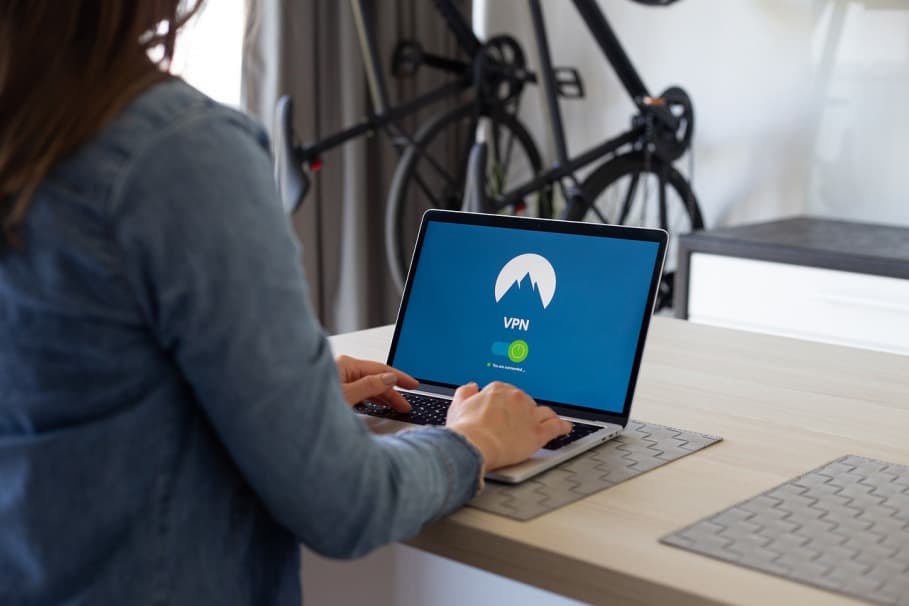When you connect your device to the internet, your ISP assigns that device, be it a router, computer, smart TV, or smartphone, an Internet Protocol (IP) address. Think of the IP address as a mailing address that, in the virtual networking world, uniquely identifies your computer. It allows computers to communicate over the internet. In addition, IP addresses also store additional information about you.
In this article, we discuss the scope of the information that IP addresses store, in effect detailing what your IP address can reveal about you and why it is important to use rotating proxies. You will also learn about more options for hiding an IP address.
Concerns about IP addresses
It is not uncommon for people to redact sections of documents and screenshots that would have otherwise shown their IP addresses. This is because these people are worried about their security. Their main concern while blocking the IP address from public view is that these numbers might reveal their home address, name, private information, and more.
While security is a paramount consideration, IP addresses do not reveal as many details as to directly threaten/compromise your or your household’s wellbeing. So, what exactly would an IP address reveal about you?

Information your IP address reveals
A simple visit to an IP lookup website, and there are many, reveals the IP address your ISP has assigned your computer or router. Alongside the combination of numbers and dots that constitute the address, the website will also display your ISP’s business name as well as details about your location.
The first sight of your location information, including city, state, country, zip code, and time zone, might be alarming. But upon taking a closer look at the details, you might realize that the location is not that accurate.
Still, a combination of these factors could pose a threat directly as a result of lapses in your ISP’s security measures. Such failures necessitate the use of rotating proxies.
ISP Practices
Typically, an ISP enables you to access the internet via their server. This means that all your internet traffic is first routed through their computing infrastructure before heading to the target sites. In so doing, ISPs have your browsing history, including the domain names of the websites you visit, entire URLs (if the site’s encryption is lackluster), and timestamps. ISPs store this information along with data about the IP addresses assigned to you at a particular point in time.
Notably, this data is usually stored for a prolonged period. Depending on your ISP and their privacy policy, this could be anywhere between three to six months or several years. Further, unlike IP lookup sites, ISPs know where you live. They may even have this information stored in their customer database. Unfortunately, this presents a security issue.
The pandemic has accelerated the growth of cybercrime. This problem is further compounded by the fact that the use of networked technologies has equally increased as a result of stay-at-home directives.
In 2020 alone, 30 billion data records were stolen. And even some of the world’s biggest cyber security firms were not spared. This trend means that cybercriminals who wish to access the data of ISPs’ customers, including IP addresses and more nuanced information about their exact locations and browsing history, could target ISPs. Access to such data poses security threats.

Security Threats
With access to your browsing history and/or IP addresses, cybercriminals may pose the following security threats:
- Download illegal material using your IP address
- Install malware on your devices
- Impersonate you and your online presence
- Track down your location, for instance, if they wish to harm you further
- Hack devices in your network by means of forcing connections using internet ports
- Initiate a distributed denial of service (DDoS) attack targeting your network
With these possible threats in mind, protecting your home or company network is important. There are various ways to protect your IP address, including VPNs, using a TOR browser, using a mobile network, or connecting to public WiFi. Of course, one of the most common ways to achieve this is also by using rotating proxies.
VPN Services
VPN (Virtual Private Network) is one of the most common ways to hide and secure your IP address. Simply put, VPN can access region-restricted sites, protect your browsing activity, and more.
When a user connects to the internet, VPN works as an additional layer that hides an IP address and creates a secure tunnel where the user's data is encoded. Websites only see the IP address of the VPN. Websites also can't see a user's accurate browsing information because it's encrypted.
There are various VPN service providers in the market, and you can choose the one that fits your needs best.

TOR Browser
Using an open-source browser TOR is a free and suitable solution to hide an IP address entirely. User’s traffic is directed through many different servers before reaching the website. The main issue with this solution to secure an IP address is a noticeably slower internet connection.
Mobile Network
Did you know that using your mobile network can hide your actual IP address? When a user turns on his mobile data, most of the time, an IP address changes. Simply put, mobile networks use DHCP to assign IP addresses, so they frequently change as is.
The main downside of this option is that it can get expensive, especially if you want to stream or download large amounts of content. This solution will also slow down connection speeds. This is more a temporary option that will help you in specific situations, such as when your IP is attacked.
Public WiFi
Connecting to an open WiFi network is an easy option to hide your IP address. Of course, you may have heard about various risks when connecting to public hotspots. For example, an unsecured public WiFi can create security risks for your computer, mobile, or any other device.
Rotating Proxies
A proxy, or proxy server, is an intermediary computer or server that routes your internet traffic through itself. Essentially, the proxies create a setup where they make all requests on your behalf. The proxy service provider assigns a new IP address that the destination site sees.
Simply, proxies change your original IP address. They make it seem as though all your internet traffic is originating from a different computer.
There are different types of proxies. Rotating proxies, for example, change the assigned IP address several times within a single session. This type of proxy server uses either a sticky IP session, which changes the IP address regularly after a predefined, fixed period, or rotating IP sessions, in which the proxy changes the IP address with every new connection request.
Conclusion

IP addresses only reveal a limited amount of information unless a security breach occurs. However, even without a breach, this address may form the basis of some illegal activities such as downloading illegal content, initiating DDoS attacks, or hacking your device.
You need to know all the possible options for hiding your actual IP address when required, including VPNs, using a TOR browser, using a mobile network, or connecting to public WiFi. Also, rotating proxies assigns your connection a different IP address that often changes.


